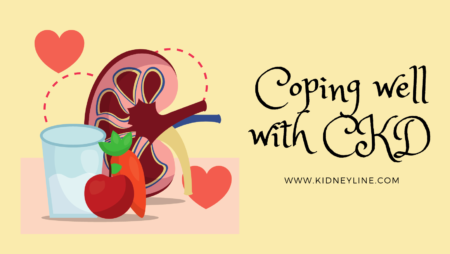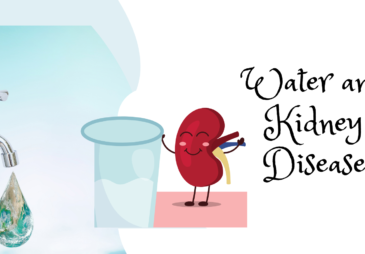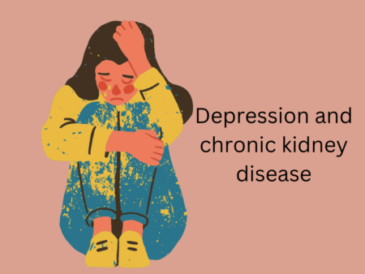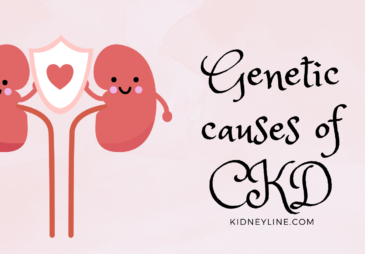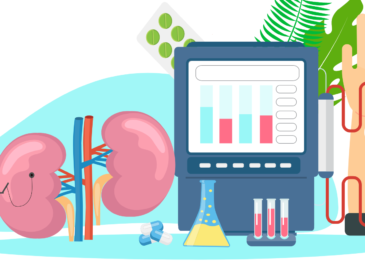Many people find it challenging to cope with chronic kidney disease (CKD). If you experienced a myriad of emotions after being told you had CKD, know that you are not alone. Typical emotions after diagnosis include fear, guilt, anger, shame and anxiety. People sometimes swing from one emotion to another in minutes, hours or days. And it is also common to experience multiple emotions at the same time.
The intensity of these thoughts and emotions may reduce over time, but knowing how to handle your feelings are crucial. Multiple studies have shown that developing strategies that help you adapt can improve your outcome. In contrast, avoiding the situation is linked to worse outcomes.
Stressors in CKD
Guilt and worry
These are common stressors. Some people worry about their role in the problem. I have met many patients who feel guilty when they believe they are responsible for their condition. They often worry about how they caused the disease. But what’s done is done, and it’s out of your control. So instead of focusing on what you cannot change, it is best to focus on what is within your control.
The nature of the disease
If you have a common cold, you’re not bothered except perhaps if you’re going to a singing competition. This is because you know you are going to get better in days. But when you get a diagnosis of CKD, you know it is for life. As one patient said, “it’s just the- the fact that this thing won’t go away, it’s my whole life, it’s always there.”
So many questions may flood your mind following a diagnosis. You wonder whether you will need to go on dialysis. You worry about needing a transplant. You worry about your future. Many times, you’re not the only one bothered. Your loved ones worry too.
The symptoms of CKD.
Common CKD symptoms are fatigue, body swelling, sleep disturbances and difficulty breathing. Fatigue is prevalent and can affect your ability to work. Some people may need to change jobs. Others may need to stop working altogether. However, if you can keep working, many experts recommend that you do so.
Frequent hospital visits
Having to go for regular checks also affects your day-to-day life. A hospital visit can take up hours from your day. If you are working, you may need to take time off work. You would also have to fit your life around these visits.
Finances
Not everyone has insurance coverage. Paying for CKD treatment out-of-pocket is expensive everywhere in the world. The effect of CKD treatment on your finance is another source of distress.
The loss of your role
With severe disease, some people may need to stop working. The loss of this role can take its toll on you mentally. In addition, for people who used to provide for their families, becoming dependent may affect their mental health.
But we are not defined by a single role. So whether you are a mother who can no longer care for her home, a father who can no longer provide for his family or a son/daughter who can no longer work, you are still valuable to your loved ones.
Fear of death:
Many people ask me, “Am I going to get better?” when they get a diagnosis of CKD. Many times, you can see the fear of death lurking in their eyes. Learning about treatment options is usually very helpful.
Family
Like many chronic diseases, CKD takes its toll on caregivers. Watching the effect of the disease on the people you love may make you sad. You may feel you are a burden and hate that they have to change some of their plans to accommodate yours. But remember that they love you. They want to take care of you, and they want you to be happy.

Signs that you’re not coping well with your diagnosis
Some symptoms that may suggest you are not coping well with your diagnosis are
- Headache
- Anxiety
- Disturbed sleep
- Loss of pleasure
- Fractured relationships
Sleeping disorders do not always mean you’re coping poorly with your diagnosis because CKD can cause sleeping problems.
Similarly, fractured relationships do not always indicate you’re at fault. Remember, CKD also takes its toll on your loved ones. So, relationship problems may arise for factors outside your control.
Despite these, it is important to reflect and see if you’re using the correct coping strategies to help you thrive despite your diagnosis.
Coping strategies
Although you might be tempted to pretend the disease is not present, such avoidant coping strategies are not the best. Some people also withdraw from social activities if they are feeling frail. They do not want others to see how they are. This is also an avoidant strategy. Even though avoidant strategies may provide some relief, this is often temporary.
Adaptive coping strategies are best. The first step is accepting the diagnosis. Another useful strategy is keeping informed about your condition and the steps you need to take. By actively participating in problem-solving as regards your health, you can improve your outcome.
You should also seek social support. Talking to friends and family is helpful. Your loved ones want to help you but they may not know how to do so. But if you share how you’re feeling with them and where you need support, you make it easier for them. But sometimes your loved ones may not understand what you’re going through. People who have similar experiences may be more understanding. Some hospitals also have support groups. You may consider joining one.
Professional therapists can help you identify negative thoughts and teach you how to replace them with more constructive ones.
You can also engage in physical activity and hobbies that make you happy, as these can promote positive emotions.
Support others. There may be ways you can give back to other people. Helping others may get your mind off your problems and promote warm and pleasant emotions.
Wrap up
It is normal to experience negative emotions when you receive a diagnosis of CKD. However, the first step to taking charge of your life is accepting the diagnosis. Once you do that, incorporating adaptive coping techniques is a great way to take control of your life.
